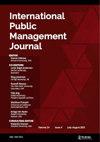越多并不总是越好:探索远程办公的曲线效应
IF 3
3区 管理学
Q2 PUBLIC ADMINISTRATION
引用次数: 1
摘要
摘要虽然远程工作已成为一种流行的职业模式,但研究发现,远程工作对员工的工作结果既有积极影响,也有消极影响。为了调和这些不一致的发现,我们应用了工作需求-资源模型,并研究了远程工作对创新和适得其反的工作行为可能产生的曲线效应。对韩国公职人员两波调查数据的分析表明,远程工作的程度与员工工作态度之间的关系并不总是积极或消极的。我们发现,远程工作可以成为一种促进积极工作态度的工作资源,但随着员工更广泛地进行远程工作,这种有益的影响会减少,最终可能变得消极。此外,领导与成员之间的交流关系起着重要的调节作用。高质量的员工-主管关系可以提高广泛远程工作的好处,但低质量的关系可能会使远程工作的负面影响更加严重。本文章由计算机程序翻译,如有差异,请以英文原文为准。
More isn’t always better: exploring the curvilinear effects of telework
Abstract While telework has become a popular occupational mode, research has found both positive and negative effects on employee outcomes. To reconcile these inconsistent findings, we apply the job demands–resources model and investigate the possible curvilinear effect of telework on innovative and counterproductive work behavior. Analysis of two-wave survey data from South Korean public officials indicates that the relationship between the extent of telework and employee work attitudes is not always positive or negative. We find that telework can be a job resource promoting positive work attitudes, but this beneficial impact decreases and can eventually become negative as employees telework more extensively. Additionally, leader–member exchange relationships play an important moderating role. A high-quality employee–supervisor relationship can enhance the benefits of extensive teleworking, but a low-quality relationship can make the downsides of telework even worse.
求助全文
通过发布文献求助,成功后即可免费获取论文全文。
去求助
来源期刊

International Public Management Journal
PUBLIC ADMINISTRATION-
CiteScore
5.30
自引率
11.50%
发文量
49
期刊介绍:
The International Public Management Journal (IPMJ) publishes high-quality empirical and theoretical work on managing large organizations, particularly public organizations. IPMJ features work from scholars around the world who conduct research in the areas of public management and government reform, comparative public administration, organizational theory, and organizational behavior. IPMJ seeks to provide a bridge between those conducting research on public management and public administration on the one hand, and those working in the areas of organizational behavior and organization theory on the other. IPMJ intends to stimulate and reflect the academic interests of an international constituency of readers and scholars.
 求助内容:
求助内容: 应助结果提醒方式:
应助结果提醒方式:


